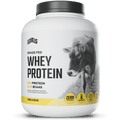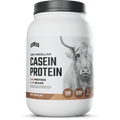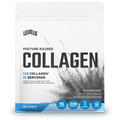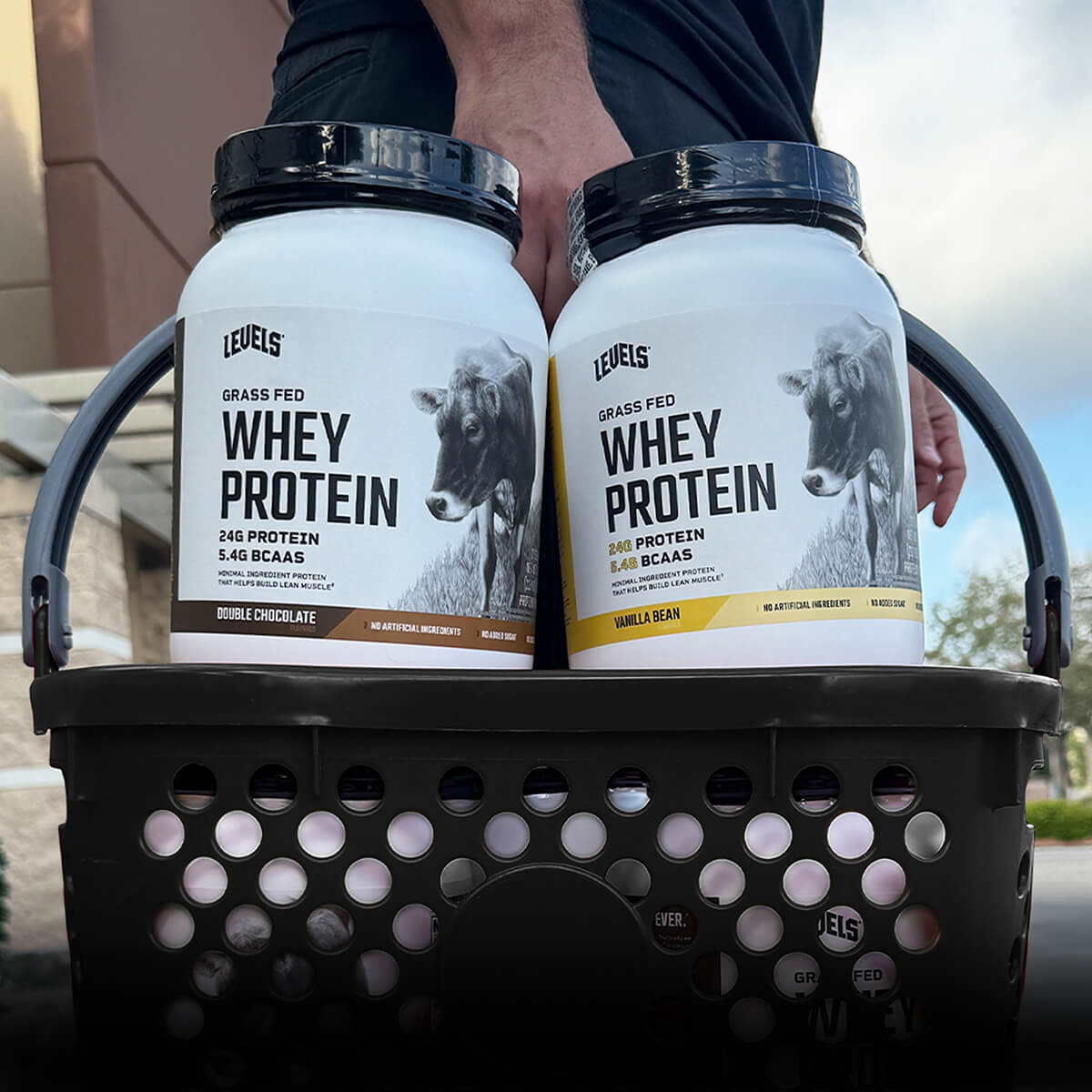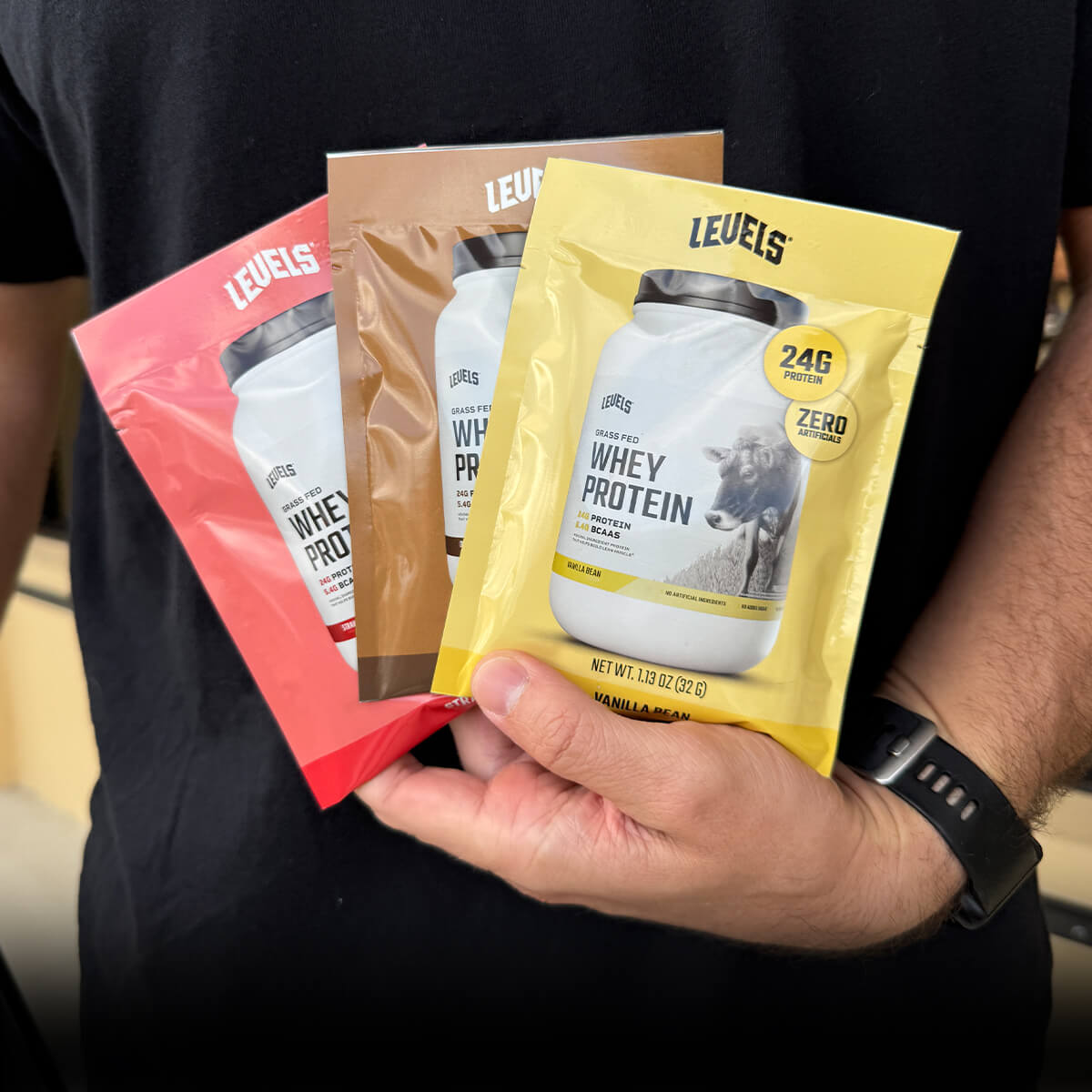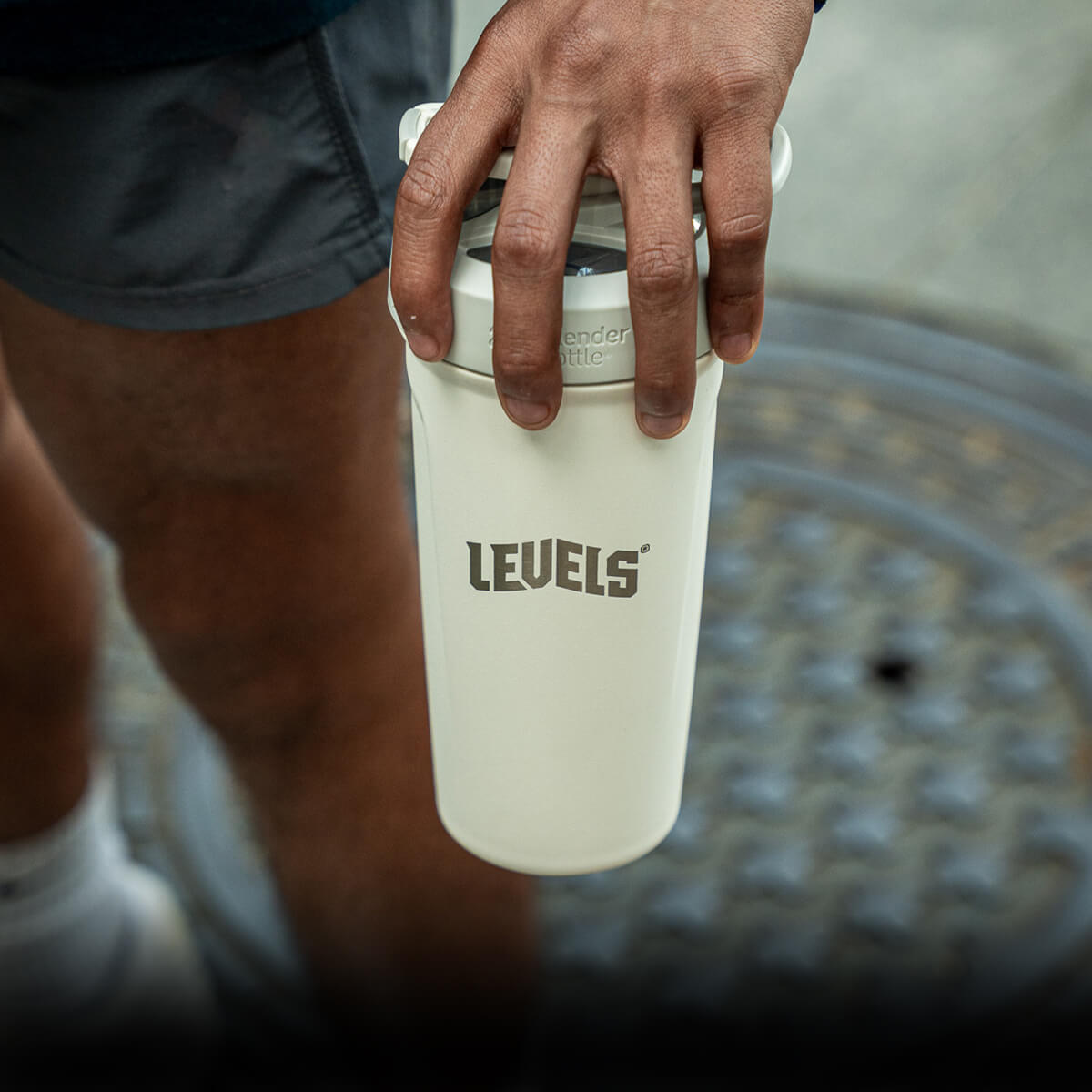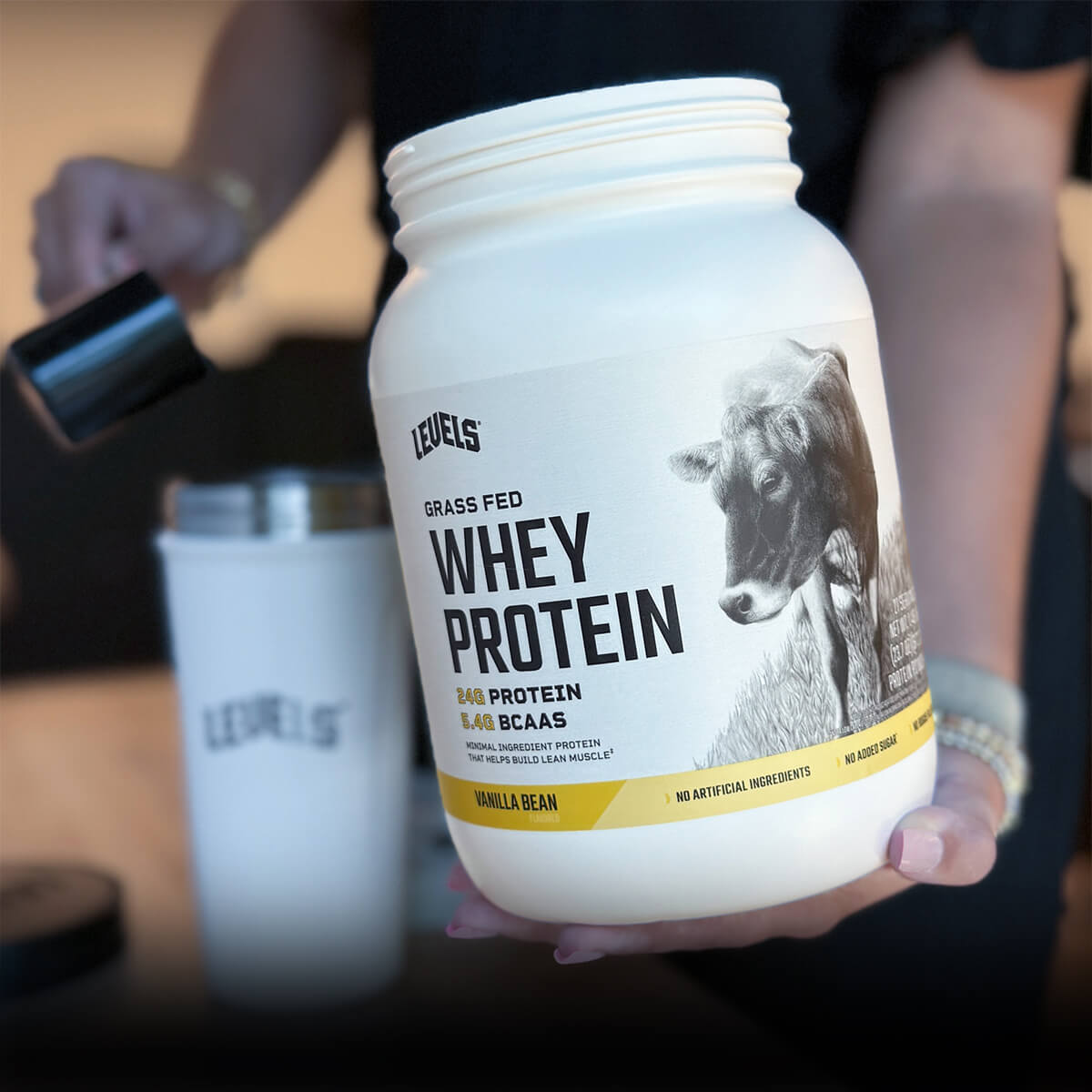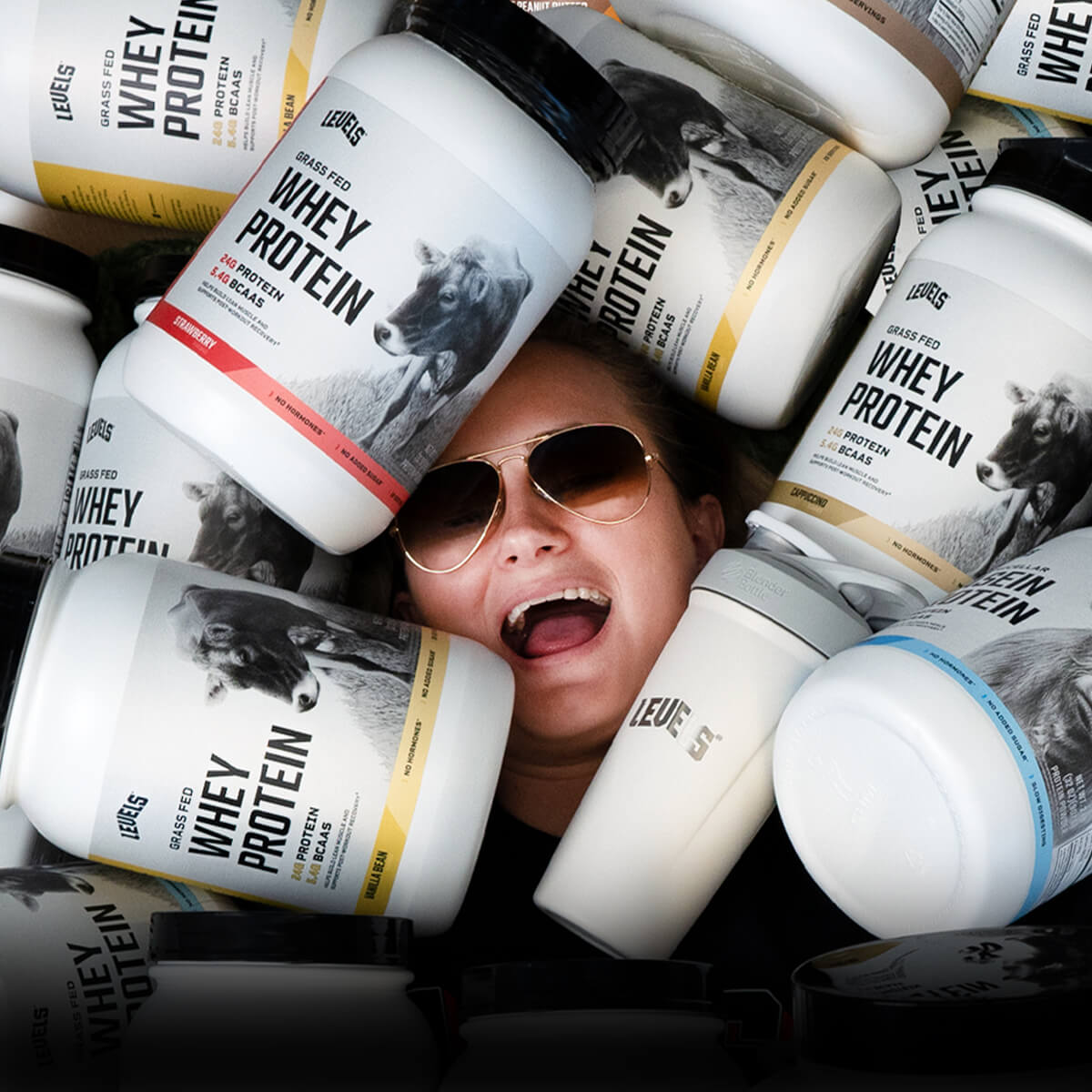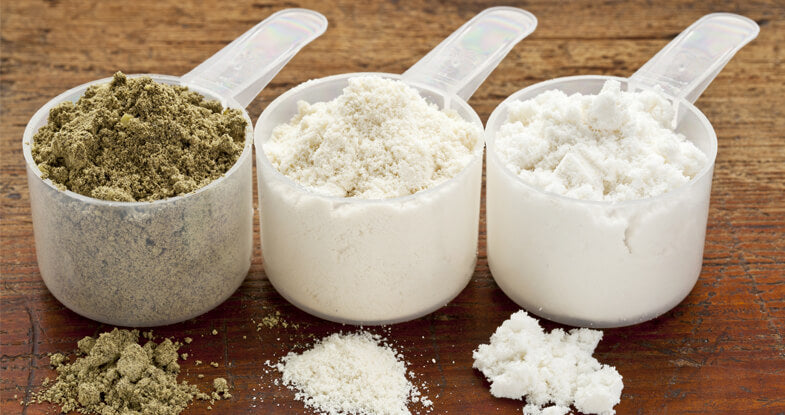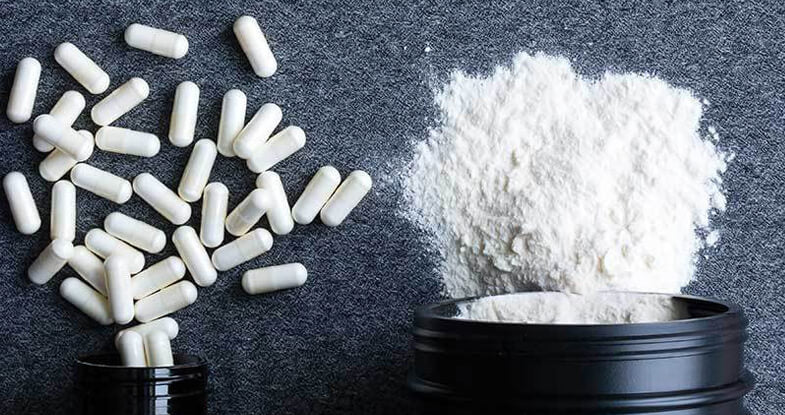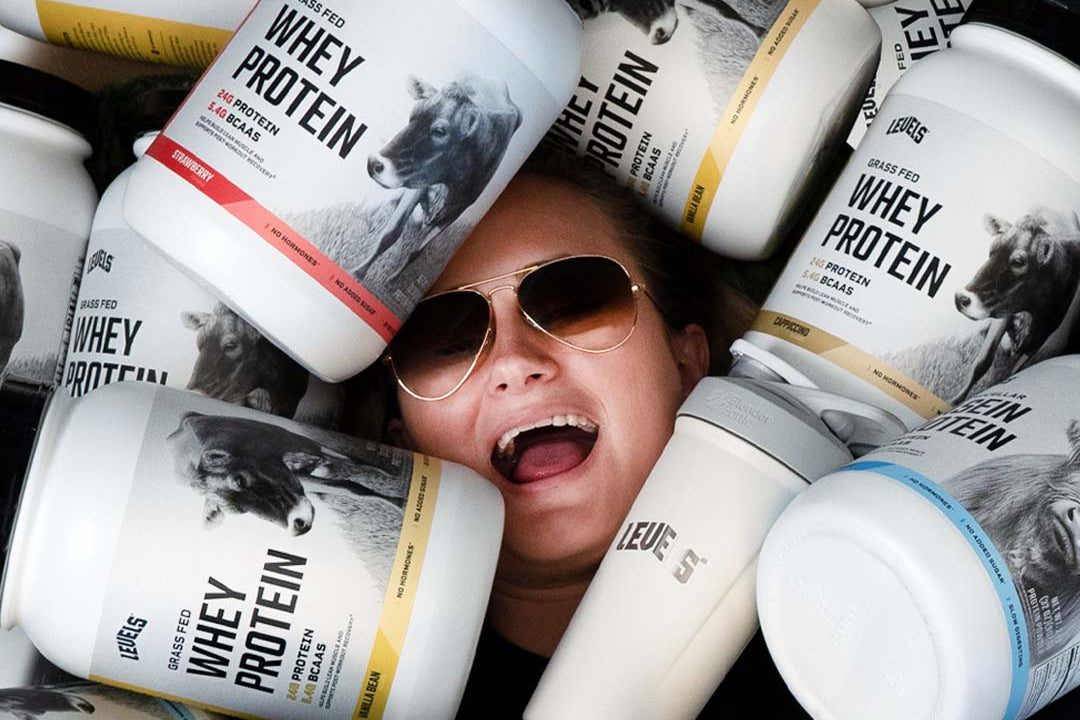Whether you’re an athlete, a health enthusiast, or just an on-the-go nine to fiver, protein powders can provide an excellent source of nutrition.
But which type of protein powder is right for you?
While the plant-based community would say vegan protein powders are the way to go, many athletes opt for whey protein. Let’s take a look at the critical differences between plant-based and whey protein so you can make an informed decision for yourself.
What Are The Different Types of Protein Powders?
From plant-based to animal-origin, there’s a wide range of protein powders on the market today. You’re likely familiar with whey protein, soy protein, and maybe even pea protein, but the variety of powders from other protein sources continues to grow. Some of the different types of protein powders you may come across include:
- Whey Protein
- Casein
- Egg Protein
- Collagen Protein
- Hemp
- Pumpkin
- Sacha inchi
- Pea
- Brown Rice Protein
- Mixed Plant Proteins
- Soy Protein
- Cricket Protein

Whey vs. Plant Protein: What to Consider
If you’re considering adding a protein powder to your nutrition regimen, you may be wondering what the difference is between all the varieties out there. Whey protein and plant protein may provide similar benefits when it comes to increasing your daily protein intake. Still, there are some significant differences to consider before tossing a protein powder into your diet.
Complete vs. Incomplete Protein
All protein sources are made up of building blocks called amino acids. While there are 21 total amino acids, only nine of them are essential -- meaning you have to get them from your food because your body can’t produce them on its own.

For a protein to be considered “complete,” it must contain all nine essential amino acids in adequate proportions. Most animal-based proteins fall into the complete protein category; whey protein included[*].
Plant-based proteins, on the other hand, often lack one or more of the essential amino acids.
For this reason, you’ll often see plant-based protein powders that contain a mixture of different sources of protein. For instance, many brands will combine pea protein and brown rice protein to create a complete amino acid profile.
However, aside from amino acid content, comes the issue of digestibility and absorption. This is often assessed through a method called the PDCAAS (protein digestibility-corrected amino acid score). The PDCAAS gives you insight into how well your body can use the amino acids that are present in a given protein.
While whey protein has a PDCAAS of 1.0 (the highest score available), most plant proteins range from 0.25 to 0.75.[*].
In general, plant proteins have a lower PDCAAS score not only because of their deficiency in essential amino acids but also due to their lower rate of absorption by your GI tract[*].
In addition, plant-based proteins contain something called antinutrients.
Antinutrients are a class of compounds that inhibit the absorption of some nutrients in your lower digestive tract. Unfortunately, amino acids are one of the nutrients affected by this inhibition.
The antinutrient factor isn’t taken into account for plant proteins when determining PDCAAS. Therefore, keep in mind that even if a plant protein has a PDCAAS on the higher end -- you may still be missing out on absorbing those essential amino acids due to antinutrients[*].
Muscle Building and Strength
If you’re looking to build muscle and strength, whey protein is a clear winner when compared to plant-based proteins. The reason for this is something called branched-chain amino acids (BCAAs), which whey happens to be a terrific source of.
Among the nine essential amino acids, there are three amino acids referred to as BCAAs (leucine, isoleucine, and valine). BCAAs, and leucine, in particular, activate enzymes that are responsible for muscle growth in your body. Therefore, they have an “anabolic” or “building” effect on your muscles.
In fact, they not only increase the rate of muscle synthesis, but they also decrease the rate of protein degradation in your body[*]. This makes BCAAs, and therefore whey protein, an excellent post-resistance training protein source.
In one study, researchers found that giving a group of volunteers 20 grams of whey after resistance training resulted in a 49% increase in muscle synthesis when compared to a group that received no whey[*]. If you want more bang for your resistance training buck -- go with whey protein.
Recovery
When it comes to recovery, your body needs a hefty supply of all the essential amino acids so it can adequately refuel your system[*]. Whey not only contains all of the essential amino acids, but it also has superior bioavailability when compared to plant-based protein. If you’re not familiar with the term, bioavailability describes how well your body digests and absorbs nutrients from a specific food.

For instance, food with low bioavailability may contain a vast amount of nutrients, but when digested, those nutrients aren’t able to be absorbed optimally.
Research shows that consuming whey protein after resistance training enhances whole-body anabolism (muscle building), and improves muscle recovery by enhancing muscle repair[*][*].
It should be noted, however, that researchers are investigating ways to enhance the protein-recovery effect of plant-based proteins. Perhaps future studies will support specific blends of plant-based amino acids for exercise recovery[*].
Endurance Training
Research shows that even though you don’t necessarily need to build more muscle for endurance training, your protein requirements still increase to around 1.2 to 1.4 grams per kilogram of body weight (or 0.54 to 0.63 grams per pound).
This is likely due to the increased need for fuel, and the subsequent breakdown of muscle that happens during exercise[*].
Since the focus isn’t on muscle-building, either whey or plant-based proteins should work for endurance training. It should be noted, however, that on high-intensity training days, the need for protein increases, and you, therefore, may benefit from a more highly bioavailable source of protein like whey[*][*].
Subscribe to get the latest advice, sales, discounts, product drops and more. Join now and get 15% off your first order.
Environmental Impacts
When it comes to environmental impact, there’s a strong case for plant-based proteins. Generally speaking, animal-based proteins require more land, water, and energy resources than plant-based.
In addition, plant-based proteins contribute to lower levels of greenhouse gases, which are an environmental concern due to their effect on climate change[*][*].
For this reason, some scientists push a plant-based eating approach[*].
However, the impact of grass-fed versus grain-fed cows is often ignored when it comes to looking at greenhouse gasses and the environmental impact of meat and dairy production.
Animals that are allowed to roam free and graze on grass experience a symbiotic relationship with the land they live on. As they consume the grass, they’re also allowed to defecate and urinate on the land freely. As a result, they provide a natural source of fertilization for the land[*].
In addition, when livestock is allowed to graze and feed on grass, the impact on greenhouse gasses shifts significantly[*][*].
If you have concerns around sustainability, and still want to reap the benefits of whey protein, always focus on high-quality whey that’s grass-fed.
Otherwise, plant-based protein offers an excellent, environmentally safe alternative.
Other Things to Consider
Dietary Restrictions
Whey protein comes from milk, and therefore won’t be an option for someone with a milk allergy[*].
In addition, even though it contains low levels of lactose, some people with lactose intolerance may react to whey protein. However, whey protein isolate (WPI) contains around 90% protein, and very low levels of lactose -- making it a potential option for those with lactose intolerance[*].
If you fall into the category of milk sensitivity, you may want to opt for a plant-based protein instead.
On the other hand, some people find themselves sensitive to plant-based protein sources like soy and rice[*][*]. If this is the case for you, whey protein may be a better option.
You may also be asking, is whey protein vegan? It is not. If you follow a vegan diet and choose not to consume animal products for moral or religious purposes then go with a plant protein.
Regardless of what your sensitivity is, make sure to read the entire label of any protein supplement you choose. Many manufacturers will sneak in ingredients like sugar, corn (maltodextrin), and soy that you may not expect to see when buying a protein powder.
Health Concerns
Due to the antinutrient compounds that can be found in plant-based proteins, those at risk for certain nutrient deficiencies may do better with whey protein.
For instance, if you’re at risk for osteoporosis due to low calcium stores, you may want to avoid legume or grain-based proteins like soy, brown rice, and pea protein. Legumes and grains contain lectins and phytates which can bind to calcium, and further deplete your stores[*][*].
These antinutrients can also bind to iron, which can become an issue for someone with low iron stores or iron-deficiency anemia[*][*].
In addition, research shows that lectins may have damaging effects on your gut, both altering your microbiome and potentially damaging your gut lining. This could lead to conditions like leaky gut and dysbiosis (abnormal gut bacteria), which can result in food allergies or even autoimmune disease[*][*].
If, however, you have difficulty digesting dairy then choosing a plant-based protein is a safer bet. This is especially true is you’ve been diagnosed with a milk allergy or lactose intolerance.
Health and Fitness Goals
If your fitness goals center around muscle-building and increasing your strength, then hands down whey protein is a superior choice when it comes to protein powder. The presence of BCAAs, as well as the high bioavailability of the amino acids in whey, make it an excellent choice for athletes[*][*].
However, if your fitness goals lean more towards endurance, you could go with either whey or plant-based protein. While whey has the superior amino acid content, some plant-based powders include naturally occurring nutrients that are protective of your heart[*].
Plant Protein vs. Whey: Which to Choose?
If your goals are fitness related, then whey protein is a clear choice. With an abundant supply of amino acids, plus a high rate of bioavailability, you can’t go wrong. Plus, the BCAAs in whey are tailor-made to enhance your muscle strength and workout recovery.
If your concerns are for the environmental impact of protein, plant-based proteins require less water, energy, and land than whey protein.
In addition, by combining different types of plant-based proteins, you can achieve a complete amino acid profile -- so keep an eye out for blends that contain two or more sources of amino acids.
Keep in mind, however, that grass-fed whey requires significantly fewer resources than conventional whey. In fact, by allowing animals to graze on farmland, it reduces the need for synthetic fertilizers, which can lead to water pollution and degraded soil[*].
Takeaway
The world of protein powders can get confusing. With so many options to choose from, it’s easy to feel overwhelmed. To simplify your choice, keep a few things in mind; choose high quality (grass-fed, no fillers), keep your goals in mind (strength, endurance, etc.), and be aware of your dietary needs (allergies, intolerances). In many cases, both plant-based and whey protein will work just fine, but if you’re looking to enhance your physical activity and recovery -- whey is the superior option.
